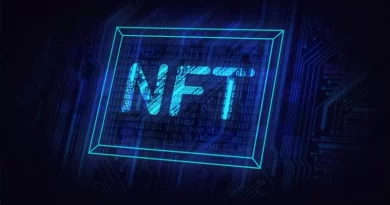Diverse NFT Use Cases Reshaping the Metaverse
Join us on a journey through the evolving landscape of NFTs in the metaverse. From NFT ticketing revolutionizing event access to the power of membership passes and soulbound tokens, we explore the transformative potential of blockchain technology. Discover the convergence of physical and digital through phygital goods, and unravel the implications of AI-generated art. The metaverse is evolving, and NFTs are playing a pivotal role in shaping its future.
The non-fungible token (NFT) space has undergone significant transformations in recent years, moving beyond the initial hype and speculation. As we enter a new market cycle, various noteworthy NFT use cases have emerged, showcasing the potential of blockchain technology to transform different sectors. This article delves into these innovative applications, highlighting their impact on the metaverse and shedding light on their future prospects.
NFT Ticketing
Revolutionizing Live Events Non-fungible token ticketing, an often underrated sector of the NFT market, holds great promise for the future of live events. By leveraging NFTs as tickets on the blockchain, issuers and recipients can benefit in multiple ways.
Issuers can maintain comprehensive attendance records through the blockchain while engaging with ticket holders through NFTs. They can send notifications, host giveaways, and create token-gated sites and services based on data associated with specific NFT tickets. NFT ticketing introduces a new level of security and transparency, mitigating fraudulent ticket sales and counterfeit entry. Additionally, it enables the integration of dynamic pricing models, allowing for ticket resale royalties to be built into the NFT, benefiting artists, event organizers, and creators.
On the recipient side, NFT tickets provide a unique and personalized experience. Attendees can receive special perks, exclusive merchandise, or access to VIP areas based on their NFT ticket ownership. Furthermore, attendees of events without NFT tickets can be rewarded through the Proof of Attendance Protocol (POAP), which enables the creation of commemorative badge-style NFTs for similar purposes. NFT ticketing and POAPs are not merely fun incentives for event attendees but also valuable tools for project founders to record early supporter participation, revolutionizing the concept of fandom in Web3.
Membership Passes
Unlocking Exclusive Perks NFT-based memberships have evolved alongside profile picture (PFP) projects and have now emerged as a distinct sector within the NFT market. Brands and programs utilize these NFTs as access keys to unlock incentives and rewards for holders.
Token-gating, facilitated by blockchain technology, verifies NFT ownership and grants access to member-exclusive perks in various settings such as Discord servers and virtual or in-person events. Prominent examples include the Bored Ape Yacht Club (BAYC), where ownership grants access to exclusive merchandise drops, music festivals, and subsequent NFT releases. Other projects like LinksDAO, LoudPunx, and Flyfish Club have pushed the boundaries of membership passes, offering unique benefits and experiences.
Platforms like Friends With Benefits and OneOf have become exemplars for organizations seeking to launch membership initiatives. They provide infrastructure for creators to engage with their community and offer unique experiences, content, and digital collectibles to members. Some ventures go beyond traditional membership passes, incorporating shared ownership and voting mechanisms to enhance community engagement and decision-making processes. These membership passes empower communities, turning them into active participants in the success and growth of projects.
Soulbound Tokens
Immutable Records for the Digital Age Soulbound Tokens (SBTs) are non-transferable NFTs designed to manage permanent records securely. Proposed by Ethereum Co-Founder Vitalik Buterin, SBTs offer a comprehensive suite of tools to preserve and protect identity-related information on the blockchain.
SBTs have the potential to revolutionize record-keeping by minting important documents such as medical records, academic achievements, employment histories, and more as NFTs with immutable and non-transferable ownership. This creates a decentralized and tamper-proof system for storing sensitive data, ensuring privacy and security for individuals. While large-scale implementation may require a fully decentralized society, evidence suggests that SBTs could become a reality in the near future.
Companies like Moonpay have recognized the potential of SBTs and are actively exploring ways to integrate them into their platforms. These tokens could streamline user verification processes, reduce fraud, and enhance security measures for financial transactions and other sensitive activities.
Phygital Goods
Bridging the Gap Between Physical and Digital Worlds Phygital goods represent the convergence of physical and digital assets in the metaverse. NFTs enable the ownership and display of virtual representations of physical objects or experiences. This concept has gained significant traction, leading to collaborations between artists, fashion brands, and virtual worlds.
Fashion enthusiasts can showcase their unique digital fashion and accessories within virtual worlds, blurring the line between physical and digital realms. Projects like 9dcc (Nine Chronicles), RTFKT Studios, and The Dematerialized are at the forefront of this movement, offering virtual wearables and collectibles that users can display and trade in virtual spaces.
The rise of phygital goods not only enables creators to explore new avenues of expression but also offers consumers a way to embrace digital fashion and art. Virtual wearables provide individuals with an opportunity to experiment with their style, express their creativity, and curate their virtual identities. As the metaverse continues to expand, the demand for phygital goods is expected to soar.
AI Collaboration in NFTs
Exploring New Dimensions of Creativity Artificial Intelligence (AI) algorithms are increasingly being used in the creation of NFT art, leading to collaborations between AI and human artists. These generative art projects, like Art AI Gallery, and AI-generated collectibles such as CryptoPunks and Rumble Kong League, highlight the innovative potential at the intersection of AI and NFTs.
AI-generated NFTs raise questions about ownership, authorship, and the extent of human creativity involved in the artistic process. Critics argue that AI-generated art diminishes the role of human artists, while proponents believe it expands creative possibilities. As AI continues to permeate Web3 and beyond, the ethical and philosophical implications of AI-generated NFTs will undoubtedly persist.
The diverse use cases discussed in this article demonstrate the transformative power of NFTs within the metaverse. NFT ticketing, membership passes, soulbond tokens, phygital goods, and AI collaboration are reshaping industries and showcasing the practical applications of blockchain technology. While some of these use cases may fade away or dominate the market, the broader impact of these innovations is undeniable. Embracing these use cases is a step forward in realizing the full potential of Web3.



